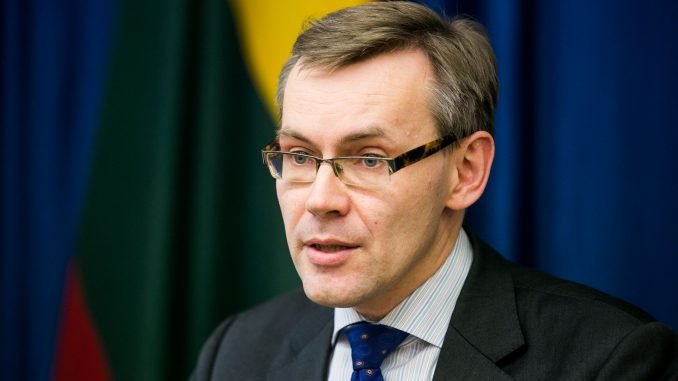
According to the diplomat, Lithuania is interested in closer ties between the EU and Belarus, but Europe will lift the existing sanctions against Belarusian President Alexander Lukashenko only after “major progress in the area of human rights” is shown and political prisoners are released.
“Lithuania very positively evaluates Belarus’ position and Belarus’ role as part of the international efforts to reach a resolution of the Russian-Ukrainian conflicts,” Krivas told BNS on Thursday, commenting on the consultations held in Minsk on Wednesday.
“We also highly appreciate the principled position of our colleagues in Belarus not to join those economic sanctions the Russian leadership is currently applying to the EU and its members,” the vice minister said.
According to Krivas, EU-Belarusian agreements on a facilitated visa regime and readmission might be initialled during the upcoming EU Eastern Partnership summit in Riga in May. The diplomat said a meeting of the Lithuanian and Belarusian foreign ministers might also be held before the summit.
In power since 1994, Belarusian President Lukashenko is criticized by the West for human rights violations in the country and restrictions for the opposition. Several hundred regime officials and dozens of Belarusian companies are currently subject to EU sanctions.
The EU blacklist of Belarusian officials was shortened last fall after Belarus released human rights activist Ales Belyatsky, but it is too early to lift all the sanctions, Krivas says.
“The main reason why EU restrictive measures against Belarusian government officials are still in place remains, and therefore it’s too early to speak about lifting these restrictive measures. To do so, the EU needs to see major progress in the area of human rights in Belarus and that, first of all, includes the release of political prisoners and the need for their legal rehabilitation,” the Lithuanian vice minister said.
Belarus will hold presidential election in November. Krivas said he “stressed the need to have a transparent election process involving international monitoring mechanisms”.

Be the first to comment